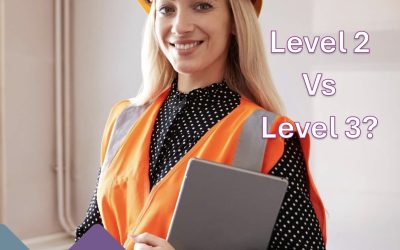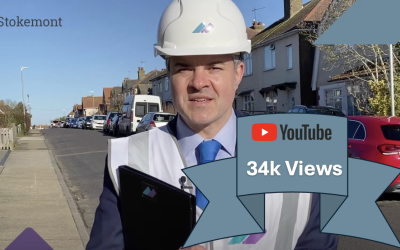In this week’s Property Surveying blog post topic we are going to be discussing license for alteration procedures and in particular the various different protocols that a leaseholder will need to follow in the event that they are planning on changing the floor surfaces within their flat and demise.
If you are a leaseholder under the Landlord and Tenant Act 1954, then in almost all circumstances under the terms and covenant within your lease you will need to gain the freeholder’s consent for various different types of alteration works.
There are widely three general types of alterations covenant that the majority of leases have. These are as follows:
A Fully Qualified Covenant
This is the most common type of alterations clause, and if you picture a traffic light this is effectively a green light and means that you will be able to undertake the planned alterations subject to your freeholder’s consent, importantly with that consent not being unreasonably withheld.
In a nutshell, this effectively means that so long as you go through the necessary procedures and implementation of the protective provisions, your freeholder cannot reasonably refuse or withhold your right to do these.
A Qualified Covenant
A qualified covenant effectively allows the leaseholder to undertake the planned works, however it is subject to their freeholder’s consent and that consent does not need to be reasonably given.
If you consider a traffic light, this is effectively an amber or orange light.
This effectively means that while your freeholder is likely to grant you the consent, they are likely to do so with the caveat of some form of premium, cost, or other levy against the proposals which can often catch a number of leaseholders off guard.
In a nutshell, while you are likely to be able to undertake the works, you are most likely to going to have to incur some form of cost that would be payable directly to your freeholder.
An Absolute Covenant
An absolute covenant is the worst case scenario and effectively means that you are unlikely to be able to undertake the works unless in the very rare and exceptional circumstance whereby the freeholder waives the restrictive alterations cause and grants you the consent.
If you consider a traffic light, this is effectively a solid red light.
In practice, this would mean that you are unlikely to be able to undertake the works unless of course your freeholder does consent.
In our experience here at Stokemont we are finding that consent is less and less likely to be given these days and as recent case law has slightly turned the tables on leaseholders and placed the freeholder in a position of risk should they exercise the right to override and waive the clause itself.
One of the most common types of alteration which we see here at Stokemont is the changing of softwood floors to hard floors.
This effectively means that a leaseholder would change carpet, to tiles, timber flooring, laminate boards, or any other form of hard floor covering.
Commonly we see freeholders request acoustic testing whereby the decibel level of the impact and traffic upon the floors will be measured both during the installation of the carpet and then once the carpets have been removed and the hard floor surfaces installed.
The issue you have with sound testing is that it is not only expensive, likely being circa £1,000-£2,000 per test, it is also relatively ambiguous as in many cases being provided with decibel levels doesn’t actually give a great deal of insight into what the day-to-day issue and traffic noise resulting from the hard floor surfaces will be.
Here at Stokemont, we take a much more pragmatic view and look at reducing the impact of the traffic and movement on the hard floor surface through the installation of sub-floor void insulation which is effectively a thick layer of insulation which will go between three respective floor joists separating the flat beneath and the subject flat to the property.
We also recommend that ditra matting is installed as this not only has the benefit of waterproof efficiency, there is also a degree of decibel reduction to it.
Finally, we would also recommend the installation of a robust and proper acoustic underlay. The acoustic underlay effectively absorbing and deadening any impact sound and airborne sound from the subject flat to the flat below.
The introduction of these three types of protective measures will in all normal circumstances significantly reduce the impact of the sound and traffic and the associated decibels that come with those and significantly reduce the impact and nuisance to the flat beneath.
It is also worth noting that in many cases the retrospective installation of these precautions will far outweigh the sound deadening qualities that the original carpet would have had over the floor in any event.
Leaseholders should note that these types of installations don’t come cheap, and you could easily find yourself looking at upwards of £100-£150 per m2 for the materials alone, on top of that you will also need to budget in the removal of the existing floorboards, the installation of the underlay, and the various different contractor time that it will take to do this.
The key thing to note from this blog post, is that so long as there is a well thought out and planned procedure in place and that the leaseholder can demonstrate to their freeholder, and importantly assuming that the alterations covenant within the lease is favourable, in all normal circumstances leaseholders are going to be able to undertake their planned works without too much restriction from their freeholder.
If you would like to discuss your licensed alteration plans with our experienced team of chartered surveyors here at Stokemont, give us a call today and we will be more than happy to assist and advise you.
Do you know we also offer 30 minutes free no strings advice and would be happy to review your lease to confirm the type of alterations covenant you have, all you need to do is pop over your plans from the lease and one of our RICS chartered surveyors will look at that and come back to you.




